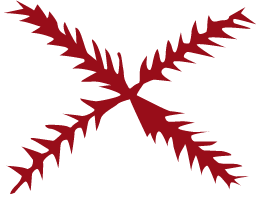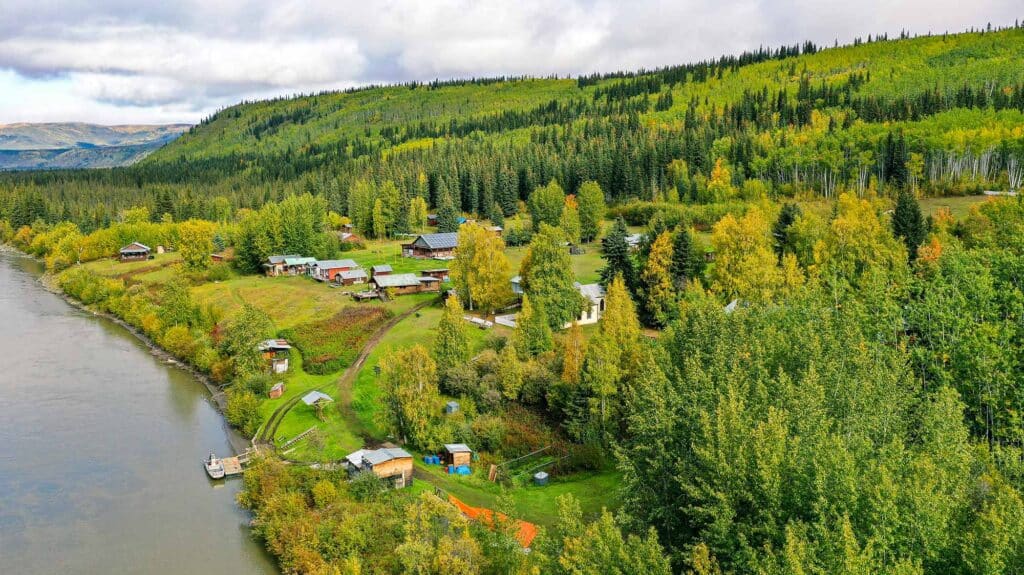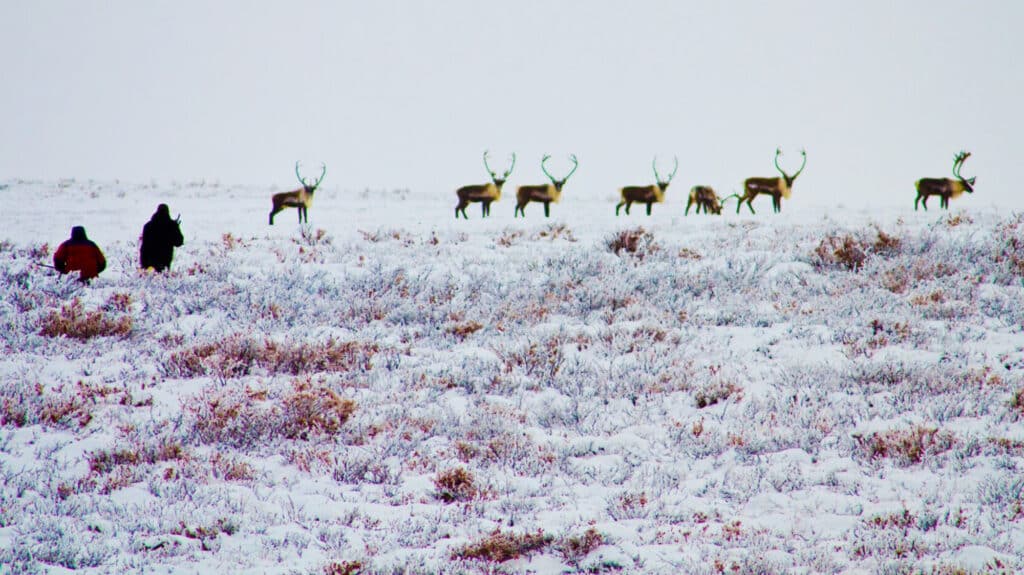The Land is fundamental to protecting and enhancing our cultural identity, traditional values, and lifestyle, and provides a foundation for self-government. Our modern-day treaties protect our rights, titles, and interests to the Land, including the rights to subsistence harvesting, water quantity, quality and flow, and full participation in resource management within our Traditional Territory.
Keep your land clean, keep your animals, they are your friends.
You look after them, they look after you.
You look after your water, land, trees, you look after it, and you respect it.
That’s our spirituality.Elder Percy Henry
The Natural Resources Department is made up of two branches. The Land and Resources Branch is responsible for managing settlement land, developing, and implementing legislation and policies, and participating in development assessment and land use planning. The Fish and Wildlife Branch is focused on co-managing fish and wildlife populations, trapline administration, and upholding our rights to subsistence harvesting.
Our traditional laws guide our interactions with the natural world and underpin how we relate to the land and how we participate in natural resource management in our Traditional Territory.
- The land is sacred and provides for our needs. In return, these gifts create an obligation for us to care for the land as stewards.
- All things are connected. All the elements that have shaped the land into what it is today, have also shaped us. Therefore, anything that has a long-term impact on the Land can also have long-term impacts on us.
- We must honour those who came before us, and act with future generations in mind.
- The land maintains an intrinsic balance. It is disrespectful to interfere with natural processes. If we focus on controlling our actions, the land will have time to adapt and adjust in ways that will continue to support us.
- Our holistic approach recognizes that everything in the universe has importance. Sometimes even small changes today can have big consequences in the future.
- The land and animals are our best teachers; in turn, we use our knowledge to care for the land, our community and ourselves.
- Maintaining good relationships between people and with the land and animals in the TH Traditional Territory requires mutual respect and reciprocity.
Documents, Applications and Forms
- TH Ecological and Land Use Monitoring Plan
- Scientist and Explorer Permit application
- Yukon Parks Park Use Permit (Research & Education) Note: If your research will be conducted on Settlement Land and will require the collection of physical samples, you are required to obtain a TH Land Use Permit beforehand. Please allow for at least four weeks to process a Land Use Permit application.


